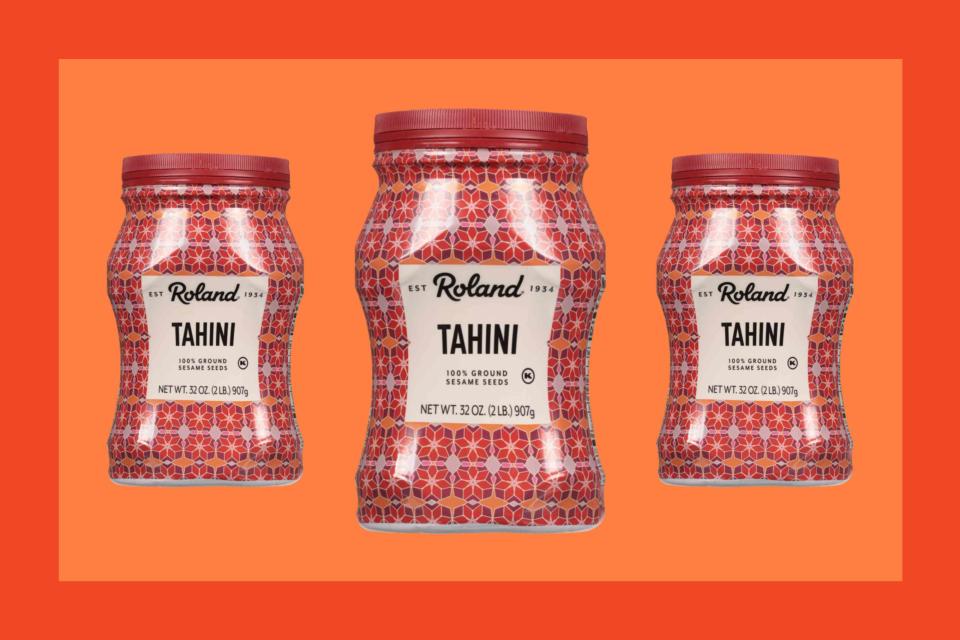Check Your Tahini: FDA Announces Recall Due to Potential Salmonella Contamination
It applies to one specific batch sold from September 2023 through January 2024.

Roland Foods
According to the FDA, New York-based Roland Foods is voluntarily recalling its Tahini (100% Ground Sesame Seeds) in multiple states due to a potential Salmonella contamination. The recall does not specify which retailers carried this specific batch, nor does it mention the number of states that received the product.
The recall only applies to the brand’s 16-ounce container, which was distributed in foodservice outlets and sold in retail stores from September 2023 through January 2024. Consumers who think they may have purchased contaminated Roland tahini should check the below details:
Batch Number: P024581
Production Code: X0419
UPC Number: 10041224701509
Best-by Date: October 19, 2024.
The UPC can be found underneath the barcode on the back of the product, while the production code and the best-by date are printed on the label toward the top of the bottle.
Related: How to Understand Food Expiration Dates
The recall was announced after a routine sampling program overseen by the Michigan Department of Agriculture and Rural Development found that the product tested positive for Salmonella. Roland Foods then suspended distribution of the 16-ounce tahini and started an investigation in partnership with its contracted manufacturer to find the source of contamination.
As of this writing, Roland has not received any reports of Salmonella poisoning.
Consumers who have purchased Roland Tahini are encouraged to check the product’s UPC number and production codes — and discard any affected product. Anyone with questions may also contact the company’s recall hotline, which will be monitored daily from 9:00 a.m. ET to 5:00 p.m. ET, at 800-622-1823.
Related: How to Share Food with Other People in the Least Gross Way Possible, According to an Expert
Salmonella symptoms — which include fever, diarrhea, vomiting, bloody stool, and dehydration — can start anywhere from six hours to six days after the date of infection, according to the CDC. Chills, headaches, nausea, and abdominal cramps are also potential signs of the disease. While most people are able to recover within a week without treatment, the young, frail, and elderly have the potential to contract serious (or fatal) infections, per the FDA. In rare instances, Salmonella may be introduced to the bloodstream and cause severe complications such as endocarditis, arterial infections, and arthritis. Additionally, while uncommon in developed countries, a few varieties of Salmonella can cause typhoid fever, according to the Mayo Clinic.
For more Food & Wine news, make sure to sign up for our newsletter!
Read the original article on Food & Wine.

